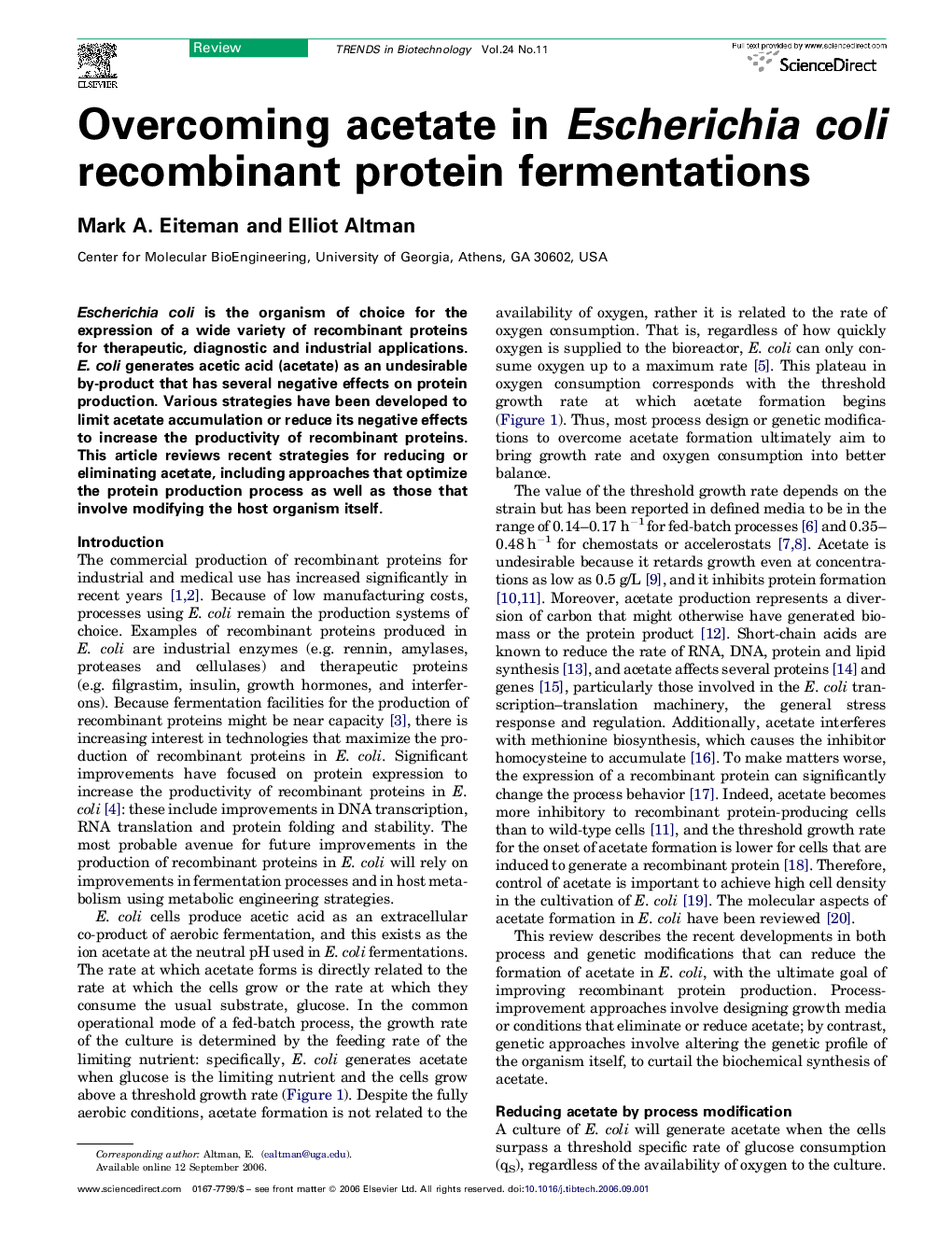| Article ID | Journal | Published Year | Pages | File Type |
|---|---|---|---|---|
| 37638 | Trends in Biotechnology | 2006 | 7 Pages |
Abstract
Escherichia coli is the organism of choice for the expression of a wide variety of recombinant proteins for therapeutic, diagnostic and industrial applications. E. coli generates acetic acid (acetate) as an undesirable by-product that has several negative effects on protein production. Various strategies have been developed to limit acetate accumulation or reduce its negative effects to increase the productivity of recombinant proteins. This article reviews recent strategies for reducing or eliminating acetate, including approaches that optimize the protein production process as well as those that involve modifying the host organism itself.
Related Topics
Physical Sciences and Engineering
Chemical Engineering
Bioengineering
Authors
Mark A. Eiteman, Elliot Altman,
